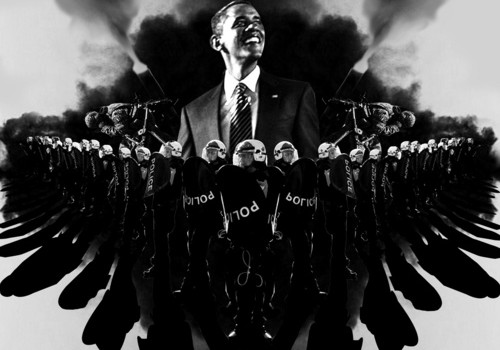On December 18th, 2014, President Obama signed an executive order establishing The President’s Task Force on 21st Century Policing. This past Monday the president touted that commission’s interim report as a chance to take action in advancing national standards and practices for local policing. The plan is nothing short of the beginning of a nationalized police force which would usurp local constitutional authority and would undeniably tie national politics to local policing.
“We need to seize that opportunity… this is something that I’m going to stay very focused on in the months to come,” Obama told reporters on Monday.
That “opportunity” he speaks of is the crisis ignited when former Ferguson police officer Darren Wilson shot and killed Michael Brown; a crisis that was exacerbated by the media and politicians, fanning the flames of racial tension for ratings and attention. That includes the Obama administration which injected a racial narrative before any investigations had been done and helped to cement a predetermined conclusion in the minds of many residents of Ferguson.
One can’t help but remember the advice of Obama’s former Chief of Staff, Rahm Emanuel: “You never let a serious crisis go to waste. And what I mean by that it’s an opportunity to do things you think you could not do before.”
In this case, the spectacle of Americans rioting and the perceived wrong of one police officer (who was vindicated both by the state of Missouri and the Justice Department), is an opportunity for Obama to push through national policing policies they would have otherwise had rejected on their face.
The federal government will use its police funding programs, such as COPS (community oriented policing services), as a way to exert more control over local practices. Conditions for funding will slowly erode local control of policing. Policies for fighting crimes will slowly wind up being planned from Washington rather than by community leaders.
And with the insertion of Washington into local policing comes national politics. If the president decides too many black Americans, or illegal Americans, or any other group is being arrested too much compared to other groups (as the Justice Department’s report on Ferguson states), then national policy may pressure local police to change that, effectively hamstringing them from doing their jobs and protecting themselves to the best of their ability.
When an officer suspects a crime is occurring, politics shouldn’t factor into his decision process.
“We need more information to find out how to take to scale best practices when it comes to training so that police officers are able to work in a way that reduces the possibilities of bias,” Obama said. The implication is that local law enforcement is incapable of serving Americans without bias unless the federal government steps in and takes control.
Obama suggested that local law enforcement would work better operating subordinately under the federal government. Of course, such action would not be grounded in constitutionality—something the president has already proven won’t hold him back. It would also make police forces on all levels subject to the political aims of federal politicians. In this instance, the left’s desire for social justice seems to be outweighing concerns about abuse of power.
“Law enforcement agencies should acknowledge the role of policing in past and present injustice and discrimination and how it is a hurdle to the promotion of community trust,” the report says. “Law enforcement agencies should implement training for officers that covers policies for interactions with the LGBTQ population, including issues such as determining gender identity for arrest placement, the Muslim, Arab, and South Asian communities, and immigrant or non-English speaking groups.”
This is yet another instance of the left’s insistence that the federal government be injected into all spheres of American life in order to ensure “fairness.” Of course that ignores the highly contentious and partisan nature of national politics, the wasteful spending that occurs on the federal level, and the propensity for corruption in anything the federal government touches. While law enforcement may be far from perfect, bringing in additional layers of political motives and bureaucratic red tape is not the answer.
It won’t ensure fairness, it will simply expand federal power and promote political agendas.




